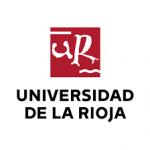Prevalence and diversity of extended-spectrum beta-lactamases in faecal Escherichia coli isolates from healthy humans in Spain
Investigation published in Clinical Microbiology and Infection
October 1st, 2009
Extended-spectrum beta-lactamase (ESBL)-producing Escherichia coli isolates were detected in seven of 105 faecal samples from healthy humans, from two Spanish cities, during 2007. In these isolates, five ESBLs were detected, CTX-M-14 (n = 2), CTX-M-1 (n = 2), CTX-M-32 (n = 1), CTX-M-8 (n = 1) and TEM-52 (n = 1). Both bla(CTX-M-14a) (surrounded by ISEcp1-IS903) and bla(CTX-M-14b) variants (included in an integron structure) were identified in this study. This is the first time that the bla(CTX-M-8) gene and ESBLs of the CTX-M-8 group have been found in Europe and Spain, respectively. Faecal E. coli of healthy humans therefore constitute a reservoir of bla(CTX-M) genes with different surrounding genetic elements
Vinue L., Saenz Y., Martinez S., Somalo S., Moreno MA., Torres C. and Zarazaga M.
 | Servicio de Zoonosis de Transmisión Alimentaria y Resistencia a Antimicrobianos (ZTA). Centro de Vigilancia Sanitaria Veterinaria (VISAVET). Universidad Complutense (UCM). |
 | Departamento de Sanidad Animal. Facultad de Veterinaria. Universidad Complutense (UCM). |
 | Área de Bioquímica y Biología Molecular. Universidad de La Rioja (UR). |
| Unidad de Microbiología Molecular. Centro de Investigación Biomédica de La Rioja (CIBIR). | |
